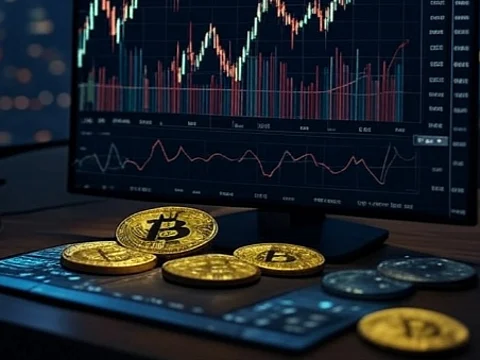

Crypto asset manager Bitwise has released a bold prediction for Bitcoin's future value, while recent Federal Reserve comments have ignited a surge in cryptocurrency prices and investor optimism.
In a report published on Thursday, Bitwise analysts forecasted that Bitcoin could climb to $1.3 million by 2035, driven by institutional adoption, demand as an inflation hedge, and its fixed supply.
This projection implies a compound annual growth rate of 28.3%, potentially making it the top-performing institutional asset over the next decade.
The firm emphasized that Bitcoin's historic four-year cycle thesis is becoming less relevant as market dynamics evolve.
Analysts led by Matt Hougan highlighted three key forces propelling Bitcoin's growth.
First, Bitcoin is increasingly viewed as an institutional-grade asset, attracting more investors amid regulatory clarity.
Second, in an inflationary environment, demand for hard assets like Bitcoin is rising.
Third, the cryptocurrency's limited supply ensures scarcity, supporting long-term price appreciation.
Currently, Bitcoin is trading above $100,000, having reached new all-time highs.
Market sentiment has also shifted positively following dovish remarks from Federal Reserve Chair Jerome Powell at the Jackson Hole symposium.
The Crypto Fear & Greed Index jumped to a "Greed" score of 60 on Saturday, up from neutral levels earlier in the week.
Powell’s comments suggested that conditions in inflation and the labor market may warrant adjusting monetary policy, sparking speculation of a September rate cut.
Bitcoin surged 5% to $117,300, while Ether reclaimed its 2021 highs, gaining over 11% to $4,851.
According to the CME FedWatch Tool, 75% of participants now expect a rate cut at the upcoming Fed meeting.
Despite the optimism, Bitwise cautioned about ongoing volatility, steep drawdowns, and risks such as regulatory shifts and legislative changes.
The firm noted the challenges of forecasting due to limited historical data, aiming to remain conservative in its models.
While technological threats like quantum computing are monitored, they are seen as secondary.
St. Louis Fed President Alberto Musalem indicated he needs more time to assess support for a rate cut, adding a layer of uncertainty to the market’s expectations.